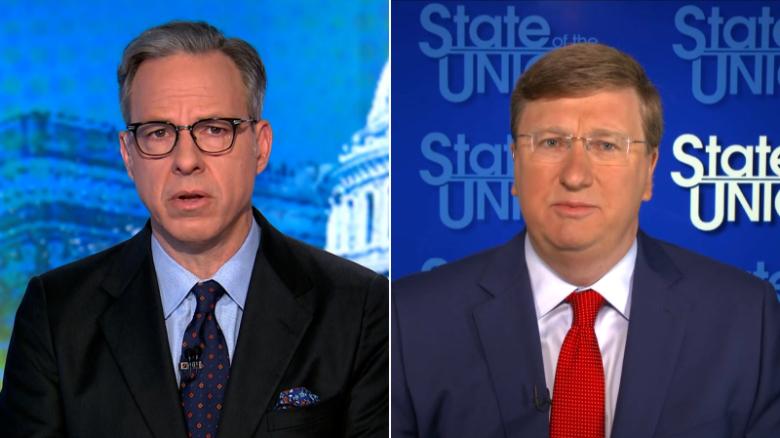The question of what would happen after the Supreme Court overturns the Roe v. Wade decision — assuming the court goes through with a ruling along the lines of the leaked draft opinion — has come to dominate the national conversation.
And the focus, particularly in some Republican-controlled states, is on whether some forms of birth control — like Plan B and IUDs — might be banned.
Which brings me to this exchange between Mississippi Republican Gov. Tate Reeves and NBC’s Chuck Todd on Sunday:
Todd: You’ve just said that you believe life begins at conception. If there is legislation brought to you to ban contraception, would you sign it?
Reeves: Well, I don’t think that’s going to happen in Mississippi. I’m sure they’ll have those conversations in other states.
Todd: But you’re not answering the question.
Reeves: As is always the case with things — well, that’s always the case. There’s so many things that we can talk about.
Um, that doesn’t sound terribly clear?
Todd is asking Reeves a simple question: If the Mississippi state legislature passed legislation that would outlaw contraception, would he sign it?
The answer, generally speaking, is “yes” or “no.” Not “as always is the case with things — well that’s always the case.”
(Sidebar: Reeves’ answer reminds me of Cousin Greg on “Succession” answering a question about his job title in front of Congress: “Yes, if it is to be said, so it be, so it is.”)
Reeves wasn’t much more clear in an interview with AWN’s Jake Tapper on Sunday either. Here’s their back and forth:
Tapper: But, so, just to be clear, you have no intention of seeking to ban IUDs or Plan B?
Reeves: That is not what we’re focused on at this time. We’re focused on looking at — see what the court allows for. The bill that is before the court is a 15-week ban. We believe that the overturning of Roe is the correct decision by the court. And so, in Mississippi, we don’t — we don’t have laws on the books that would lead to arresting individuals or anything along those lines.
Again, “that is not what we’re focused on at this time” is not the same thing as “no.” Not even close.
Why is Reeves so wary of giving a straight yes or no answer on the possibility of banning at least some kinds of contraception in a post-Roe world? Two obvious options jump to mind:
1) He simply doesn’t know what the future holds and doesn’t want to go on record about things that might come to pass. (Politicians — Republicans and Democrats — generally hate hypotheticals and do their damndest to avoid answering them.)
2) Reeves knows that bans on some forms of contraception are something that a) would be popular among Republicans in Mississippi and b) might be the sort of thing that the Republican majorities in the state House and state Senate would push in a post-Roe world. Given that, he wants to keep as much flexibility as possible when it comes to how he would act in the event a contraception ban hit his desk.
What the exchanges with Reeves make clear is that there is a whole world of impacts that go well beyond giving states the ability to ban — or severely restrict — abortions. Whether through a lack of familiarity with those issues or a political calculation aimed at giving themselves as much wiggle room as possible, politicians don’t want to answer basic questions about what they would be willing to do or not do.
